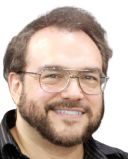Fantasies
Westworld, the Holocaust, and the Filter of Fiction
Is it right to discuss Holocaust horrors together with cowboy robot sci-fi?
Posted July 13, 2018

If people can numb themselves to current tragedies of human design, maybe insight needs to creep up on them through fiction. If so, it may be the case that something less obvious and seemingly unreal might do the job better.
My current work writing about Westworld has coincided with a point in history when many people see reminders of things that happened in Nazi Germany in the 1930s. I've been rereading works such as Viktor Frankl's Man's Search for Meaning and Elie Wiesel's Night, while also rewatching films such as Schindler's List, yet again. Perhaps this is why I've noticed some unnerving representations of a dark part of human history in the story being told with cowboy robots on HBO. Or perhaps it's because Westworld asks existential questions about the nature of humanity and artificial life, and existential psychology did not provide a lot of enduring answers until Holocaust survivor Frankl began to talk about the importance of meaning.
Shortly after his release from the last of several concentration camps, Viktor Frankl spent nine straight days (1959/2006, preface to his 1992 edition) writing his account that would be translated as From Death-Camp to Existentialism (1946) and later appear as the first section of Man’s Search for Meaning (1958/2006). A Library of Congress survey ranked Man’s Search for Meaning as one of the thirteen books that have most influenced people’s lives (Fein, 1991). His autobiographical account and Wiesel’s run similar courses: Rumors of happenings in Germany seemed too outrageous to believe, the Nazis arrived in their homelands (Austria for Frankl, Romania for Wiesel), their families had to crowd into ghettos, trains transported them to Auschwitz to be sorted and stripped, they outlived all other immediate family members at the camps, and they somehow survived without getting randomly murdered but also without giving up before Americans freed survivors at Dachau (Frankl) and Russians liberated those at Buchenwald (Wiesel).
Drawing parallels between family suffering during the Holocaust and fictional sufferings in the form of Dolores’s loss of her father, Bernard’s of his son, or even Arnold’s of that same son can seem frivolous or disrespectful, but we can often look at the toughest topics in life more easily by filtering it through fiction, especially fantastic fiction. Westworld genuinely explores some of the most frightening topics that face the human race: What brings out the best and worst in people? How do we treat people if we don’t think them of as people? Will our own creations destroy us? And will they judge us first? Whether A.I. can gain true consciousness or not may not matter when synthetic beings are nevertheless able to analyze human history, evaluate options, and take actions their designers never intended. History is replete with examples of atrocities committed against others simply for being different. Life in the Old West, for example, was never as pretty as people sometimes romanticize. Massacres took place, including many of genocidal nature (Alvarez, 2015; Madley, 2017). Many consider Elie Wiesel to be the person who popularized the use of the word Holocaust to name what happened in those concentration camps, but it was not the only holocaust in history. He also said the word was not strong enough because no word could ever be (Wiesel, 1999).
When the A.I. version of the character Robert Ford tells Bernard, “Here you are, the last of your kind,” consider how Bernard must hear that. As far as Bernard knows, he is at that moment the sole survivor of the massacre of his entire people. That is, by definition, genocide. Human treatment of Westworld's robot hosts—stripping, abusing, and exterminating, as well as denying evidence of personhood and indifferently splitting families along the way—is reminiscent of how slaveowners have treated slaves; conquerors, the conquered; and Nazis, their victims. Perhaps it is because a hard look at history can paint a gloomy picture that Westworld often seems to take a bleak view of human nature. Then again, two cynical individuals infect Westworld with their own misanthropy: Robert Ford “imbued the hosts with a worldview that reflected my own” (demand characteristics) and William’s vision has determined which humans would run the park (selection bias). The available sample may misrepresent that fictional world’s population, as Dolores or Bernard might learn once they interact with more people outside. Even the aforementioned cynics cling to some hope for the future. They are cynics who do not want to be.
That's the worst part. Now I'll start thinking about the better part. As Frankl pointed out, not everyone becomes a monster. A number of the guards were sadists, to be sure, but the majority were not and some showed the captives humanity and mercy. After ruminating over the black hats, what will I see when I contemplate those who choose another way?
More to come....
Related Posts
References
Alvarez, A. (2015). Native America and the question of genocide. Lanham, MD: Rowman & Littlefield.
Fein, E. (1991, November 20). Book notes. New York Times, p. C26.
Frankl, V. E. (1946). …trotzdem Ja zum Leben sagen: Ein Psycholog erlebt das Konzentationslager […Nevertheless say ‘yes’ to life: A psychologist experiences the concentration camp]. Vienna, Austria: Verlag.
Frankl, V. E. (1959/2006). From death-camp to existentialism (I. Lasch, Trans.). Boston, MA: Beacon. (Original work published 1946—see above).
Frankl, V. E. (1962/2006). Man’s search for meaning: An introduction to logotherapy (I. Lasch, Trans., part I). Boston, MA: Beacon. (Part I, original work published 1946—see above. Part II, original to 1962 edition.)
Frankl, V. E. (1999). Recollections: An autobiography. New York, NY: Plenum.
Madley, B. (2017). An American genocide: The United States and the California Indian catastrophe, 1846-1873. New Haven, CT: Yale University Press.
Wiesel, E. (1958/2006). Night (M. Wiesel, Trans.). New York, NY: Hill & Wang.
Wiesel, E. (1999). And the sea is never full: Memoirs, 1969—. New York, NY: Random House.


